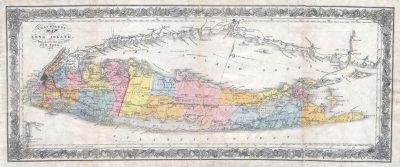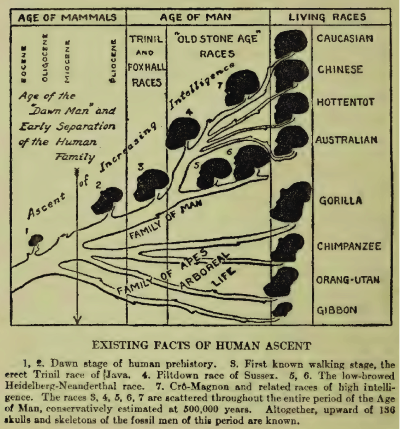
How should the history community advocate on its behalf? Perhaps instead of focusing at the state level for the advocacy for state and local history, one should think smaller. In this post, I wish to address the recent example by the Long Island history community and to make some suggestions about the next steps. Long Island is a region of millions so it is bigger than most of the other regions in New York State with the exception of New York City. It some ways, it may be considered comparable in size to a state.
A few months ago, an email notice went out announcing the Long Island Historian Summit.
INVITATION
You are cordially invited to a one-day summit of assigned Long Island county, town, city, borough and village historians.
According to the press report on the meeting (see below):
New York law requires that incorporated villages, towns and boroughs have their own historian, said Howard Kroplick, historian for the Town of North Hempstead and an event co-organizer. However, the law does not dictate what kinds of resources those historians should have or how the job should work. According to a survey Kroplick conducted of 22 village and nine town historians, job descriptions and salaries widely range. Most of the historians said they worked part time, and 27 percent never release any kind of report on the work they have done. More than 90 percent of village historians work from home and almost none are paid. Kroplick said his survey also found that the top two concerns among the surveyed historians were saving historic buildings and projects and obtaining funding and resources.
The purpose of the conference was to assist this particular segment of the history community.
This conditional invitation restricted the attendance to these municipal historians in Long Island. The invitation did not extend to the history community at large in Long Island. Other regions in New York have conducted regional history meetings under the rubric of the Association of Public Historians of New York State (APHNYS). My experience with them has been that meetings in the region were open to the general history community and to affiliate members of APHNYS such as myself. There is no right or wrong way to organize such meetings. It is at the discretion of each region. For a first time effort, it was reasonable to restrict the potential audience.
It should be noted that Long Island contains a huge number of villages, towns, and not-so-large cities, and two counties. According to Kroplick, of the 117 municipalities in the two counties, there are 72 appointed historians. The compliance rate with the state regulation is 62% meaning 38% of the municipalities are in violation of the law.
Since Brooklyn and Queens are part of the island, the borough historians were also invited.
The attendance was 65 people. That number far exceeds the regional meetings I have attended elsewhere even when open to the general history community. It was the largest meeting of Long Island historians ever and, according to Devin Lander, New York State historian, likely the largest gathering of local historians at a New York State regional meeting. Kudos to Long Island for showing up in force.
FUNDING
The Long Island Historian Summit, sponsored by the Robert David Lion Gardiner Foundation, will be held on Saturday, June 30, 2018 to provide an opportunity to discuss challenges, opportunities and experiences relevant to their positions.
One immediately notices here a critical element in the advocacy process – funding. A local Long Island foundation decided to sponsor the meeting. The Robert David Lion Gardiner Foundation, provides financial support for historical preservation projects around Long Island. It supported a county history class at the Nassau Community College (a class every community college should offer). It funded and helped organize the event. A representative from that foundation is on my email distribution list. A few months ago, I had the chance to meet her at a regional meet-up held at the 9/11 Memorial organized by the Museum Association of New York (MANY). The Foundation definitely is interested in statewide advocacy and has been following the deteriorating situation in New York State. I reported on that subject in a series of blogs written before I attended the recent conference by the Massachusetts History Alliance. As will be seen, there is a lot which can be accomplished at the regional level rather than trying to embrace the state in its entirety.
PROGRAM
The speakers and moderators included various government levels and different elements of the history community:
Devin Lander – New York State Historian
Thomas J. Ruller – Assistant Commissioner for Archives and New York State Archivist
The Honorable Peter Fox Cohalon – Suffolk County Historian
Howard Kroplick (Chairperson) – Town Historian of North Hempstead
Zach Studenroth – Village Historian of Southampton
Barbara Russell –Town Historian of Brookhaven
Dr. Georgette Grier-Keys – President, Board of Trustees of Association of Suffolk County Historical Societies.
The program itself besides the presentations by the two state representatives included sessions on
Funding – including preservation, conservation, and humanities
Resources – including archaeology by the New York State Office of Parks, Recreation, and Historic Preservation, signs by a private funder of history signs, education by the Guilder Lehrman Institute, and preservation.
One key omission in this group was the Regional Economic Development Council (REDC) director for Long Island. In New York State, the state is divided into regions which compete for state funding. The process is derisively referred to as “Hunger Games” and its effectiveness as an actual job generator has been questioned. Nonetheless, it is the major game in town for state funding so it behooves the history community to reach out to it even though the odds are it will lead to nothing.
PUBLICITY
The meeting was covered by Newsday, the leading newspaper in Long Island. Obtaining such publicity was a great achievement. I wonder how many other such regional or state meetings are covered by the media. At minimum, the conference organizers should send press releases announcing the meeting and then reporting on it along with pictures the media can used to disseminate the results. Kudos to the Long Island municipal historians for getting such coverage.
THE MEETING MESSAGE(S)
Without intending to, the press coverage highlighted the two divergent approaches taken towards the history community. This dichotomy has been the subject of posts in the past. I have called it the Paul Tonko versus the Andrew Cuomo approaches based on the two politicians, one federal, one state, in New York. By this I mean, the role of history organizations as part of the social fabric, as part of the civic identity of community versus history organizations as economic generators through tourism.
Consider the contrast between these two comments as reported in the Newsday article.
Devin Lander, New York State historian and one of the event’s organizers: “The communities that do well and are drawing those tourists, they’re leaning on their history. It’s very important that we talk about the relevance of what we’re doing.”
Amy Folk, Southold Town historian: “The historian’s job is to look at the past and give context for the present and the future.” This quotation followed the report by Newsday on the discussions:
Historians also emphasized how to explain the importance of their work to the community — preserving a village’s central historic church, for example, also benefits community services like day care centers and food pantries that use the space, they said.
While I have no objection to cultural heritage tourism, is that really viable for the average community historical society? Think of the planning and effort by the often volunteer staff to handle a school visit by a single class, by an entire grade, by more than 100 people. Do residential communities really want busloads of tourists driving through their communities on a daily basis? Sure the local food places would benefit, but is that the primary function of a municipal historical society – to generate tourism? Municipal historical societies like the local library and the local school or part of the social fabric of the community. The primary responsibility is to develop a sense of place, a sense of belonging, a sense of community, by connecting the residents to the story of the community from Ice Age to Global Warming.
True, this was a conference of municipal historians and not historical societies. However some governments own historical sites and a representative of the historical societies was present at the meeting.
WHAT’S NEXT?
The article concluded with an implication of what’s next.
Brookhaven Town Historian Barbara M. Russell said historical groups can thrive by coming together. Events like Saturday’s summit are key in making those connections happen, especially for smaller groups that can’t afford to make trips to Albany, where state resources are concentrated.
The next step for this convocation is to bring the state capital to the region. This is an election year. Long Island will be electing state legislators and senators. What a perfect opportunity for the history community to advocate on behalf of local and state history. I suspect some of the people attending the conference know their local politicians. Now is the time to arrange meetings with all the major candidates to discuss history concerns on their home turf and not at the state capital. I don’t mean to have a philosophical discussion on the merits of history. I mean to have specific “asks.” You want this bill to be passed or to be rejected. You want the spending limits for this program to be increased. You want school curriculum to include local history at the elementary, junior, and high school level. Or whatever your agenda is. Now during this election year is the time to act. And when you meet with the candidates, make sure you know the number of people who are members of historical societies in that district. Numbers count.
Finally, you need someone who will lead this effort. This conference was led by Howard Kroplick, historian for the Town of North Hempstead. He comes from the business world and still has his mojo. He is looking to do things. It takes somewhat like that to make things happen. Here is an opportunity for him to take a leadership role in one region and create a template that can be used elsewhere. Here is an opportunity to develop at the regional level an effort which can led to a statewide effort. The history community certainly could use such a jolt.





Thank you Peter for the recognition of Robert David Lion Gardiner Foundation’s role in the History Summit. To be perfectly honest your postings and a conversation I had with Dr. Kenneth Jackson led to the Summit. RDLGF’s mission is to promote regional history with a focus on sustainability. I approached Howard Kroplick, North Hempstead Town Historian to oversee the event. Howard, as usual, went brilliantly above and beyond in the execution of the day. The Robert David Lion Gardiner Foundation hopes to offer this event annually. To do that I must receive grant applications with a reference in the historic 501c3’s narrative that their municipal historian suggested RDLGF as a funding project source. There were 2 panels of funders and service organizations of presenters along with venders available for the public historians to share with their non-for-profit history stewards. Applicant notification of their organization reaching out to those groups for support would also be helpful. This would show RDLGF that the municipal historians are actively aiding their historic stewards by suggesting these resources.
Thank you for this forum.
Thank you Kathryn. I am gratified to see my posts had some positive impact. I see you want to make this an annual event in Long Island. Would you consider expanding the invitation list to include the rest of the history community? How about in another region? Maybe some of the students in the local history class would be willing to help craft and agenda that can be presented to the candidates this fall. I am very glad you wrote.
Peter
“Advocating for State and Local History:” Now there’s a novel thought. But first why don’t we quit publicly castrating those few historians with the balls to challenge local myth, lore, and legend by digging into and basing their writings from the original contemporary historical record(s) in lieu of analyzing and regurgitating the analysis of previous fellow historians.
Advocating for state and local history doesn’t mean there is unanimity about that history. After all people were on both sides of the American Revolution, the Civil War, suffragettes, and the Vietnam War just to mention a few topics. Naturally there are surprises if people starting digging into the source documents but that doesn’t mean it shouldn’t be done. I suspect the bigger problem will be not the information revealed but the way in which it is done.
Excellent!
Thank you stranger. Perhaps one day our paths will cross.
Hi, Peter
As always, thanks for your emails and for your continued advocacy for local, regional and state history.
A few weeks ago, Lee Hudson, editor of the new Tri-County publication, “Catskill Tri-County Historical Views,” sent you a copy of our first issue. The Gilboa Historical Society & Juried History Center, the publication’s sponsor, provided the initial seed money to produce and mail it to 4,000 historical society members in the Delaware, Greene & Schoharie County region. The County Historians from each county in our readership area are contributing writers. In all, there are 24 contributing writers who volunteer their time to produce this publication for a growing readership. Chief among these volunteers is Lee Hudson, a Gilboa Historical Society Board member and the publication’s creator and Editor, who dedicates hours of her time each day to help shape Catskill Tri-County in content, image and design. And, we can’t leave out our subscribers and sponsors who have helped us match the original seed grant that will allow us to publish Tri-County’s next two issues. I’d hoped that you might be inspired to bring our positive story to your readership in the manner in which you have reported on so many other positive stories of community efforts to support local-regional & state history. Is there a chance that we can persuade you to do so?
Thanks for all your efforts on behalf of NYS history.
Sincerely,
Carolyn
Carolyn Bennett
Executive Director
ZADOCK PRATT MUSEUM
Hi Carolyn,
Thank you for your kind words and all that you do. I have the magazine in front of me. It definitely represents another way to reach out. I hope you will consider reaching out to high school seniors for contributions.
I haven’t quite figured out what I want to write about it. According to my notes, I intend to compare a painting you have on the cover and page 19 with Thomas Cole View from Fort Putnam. Do you have an image I could use.
I need to review my notes and figure out why I wrote what I wrote while I was reading it. In any event, congratulations for for the publication.
Peter, thank you for the write-up on the Long Island Historian Summit. It was an amazing program with wonderful speakers and audience interaction. Feedback from the participants was very positive with 100% evaluating the Summit excellent or good and 100% evaluating the Summit as exceeding or meeting expectations.
As you noted, Kathy Curran and the Robert David Lion Gardiner Foundation deserve credit for this effort. Without their support, this program would not have been possible. New York State Historian Devin Lander was also instrumental in organizing this program and helping make it such a success.
I encourage other regions of New York to reach out to the Robert David Lion Gardiner Foundation to support similar “Historian Summit”. If anyone needs assistance, I am available at Howard@Kroplick.com and can be reached at 516-625-0123.
Peter,
Thank you for a great conversation. For years I’ve had an idea for a Harlem History Museum that both advocates and displays the history of Harlem.
I always imagine what a Harlem History Museum could do for Harlem tourism and the education of the area’s deep and rich history.
Danny Tisdale
Founder and CEO
Harlem World Magazine
Danny,
Why not start by seeing if there is any interest in the community. Contact HumanitiesNY for a brain-storming grant and hold a meeting.
Peter
Thanks for the terrific article